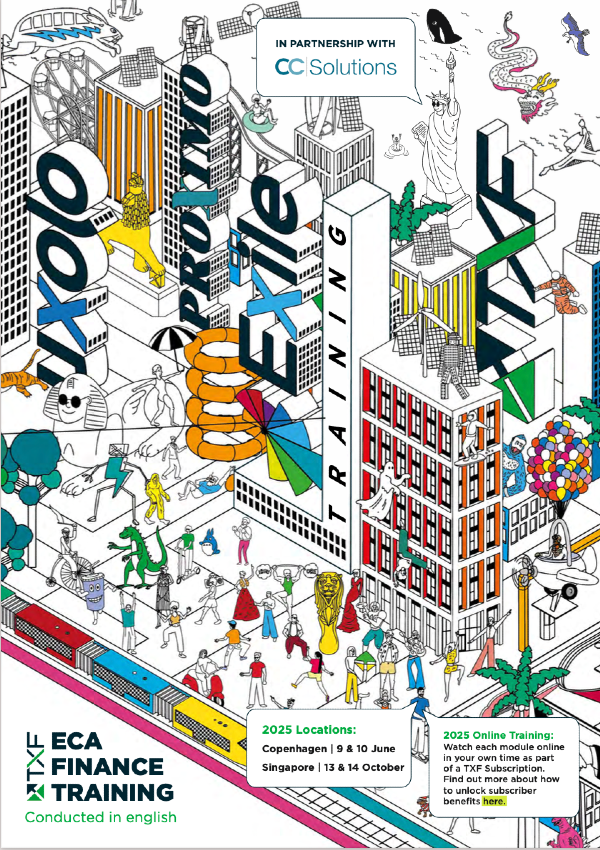Is BAML retreating from trade and export finance?
A spate of high profile ECA and trade finance departures from Bank of America Merrill Lynch (BAML) has fuelled speculation that the bank is withdrawing from the business lines.

A spate of high-profile ECA and trade finance departures from ~Bank of America Merrill Lynch^ (BAML) has fuelled speculation that the bank is withdrawing from the business lines. A source close to the bank describes a “fadeaway in ECA medium- and long-term transactions” throughout 2013 and 2014 that has led to the successive departures of the entire ECA teams in Asia, EMEA and – most recently – North America.
In addition to this, market commentators have speculated as to whether the bank is now retreating from short-term trade, too. Trade and cash management both fall within Global Transaction Services (GTS), and the bank maintains that the two products are treated equally. However, sources note that senior positions within GTS are increasingly fulfilled by individuals with backgrounds in treasury – not trade – and consequently infer that trade is no longer as important for BAML as it once was.
The latest set of dismissals occurred on 8 March this year. TXF understands that eight individuals were dismissed from the North American trade and export finance teams. Amongst the departures were the head of trade sales for North America; the head of structured trade for North America; the head of trade and supply chain finance for Asia and North America; and a trade sales officer based in the US and responsible for Latin American corporates.
A second source believes the reason for the retreat in export finance is the high cost involved with placing ECA-backed transactions on the bank’s balance sheets. “Given that ECA financings generate high-quality assets but don’t demand premium pricing, the tenor requires that they’re on the bank’s balance sheet for a significant amount of time. Given all of the Basel III challenges that banks are facing, the bank has generally felt that the returns are not significant enough to allow the bank’s balance sheet to be deployed. And the bank isn’t interested in putting assets on its balance sheet for assets’ sake – they also want to see a linkage with either the exporter or the importer in terms of enhancing that relationship.”
The source believes that, as a result, “the expertise that the bank had in house for ECA structuring has for the most part been eliminated over the last 18 months to two years.”
BAML, however, says it remains “fully committed to investing and growing our leading global trade and supply chain finance capability, including ECA and structured trade. We continue to be unwavering in our commitment to meet the evolving needs of our clients worldwide.”
Furthermore, some commentators believe that this retreat is no longer limited to medium- and long-term solutions, and that BAML may also be beginning to retreat from short-term trade. TXF understands that two senior trade finance specialists resigned from the London team in January. The second source sees these departures as symptomatic of a “change in philosophy around the need for dedicated trade finance sales specialists […] The direction is more to rely on treasury sales generalists to be the focal point for all conversations across the transaction services product spectrum, which includes cash management services, FX, liquidity and trade and supply chain finance, etc.”
The first individual tells TXF that these departures are the result of a belief at BAML that “trade should be subordinated into cash.”
The bank itself disputes this assertion. A BAML representative tells TXF that “trade is not being integrated into treasury. The teams work collaboratively, side-by-side, and we think that it’s best to organise these functions together as a single group. Our clients tell us that this is great, as it enables us to provide them with an end-to-end view on how to optimise their working capital.”
This view echoes that expressed by the bank’s head of global trade and supply chain finance, Percy Batliwalla, and EMEA head of trade and co-head of product management, Peter Jameson. Jameson and Batliwalla both spent the majority of their careers in treasury and cash management, before taking on additional responsibilities within trade finance. In a recent interview with TXF, they explained how BAML’s strategy comprises a “convergence of cash and trade.”
Some, however, are sceptical of this approach. One commentator believes the convergence of trade and cash will harm smaller businesses, commenting that “the cash people were interested in the supply chain function, but the concern is that trade services will not be a priority for treasury sales officers. Bank of America serves a lot of small businesses, and most of these small businesses wouldn’t qualify for supply chain finance programmes as buyers, because they are not able to offer their suppliers a beneficial rate, so they’re very reliant on traditional trade services […] This new market will largely ignore the needs of those middle and small market names”.
The bank has issued a statement in response to this claim, saying that “there is no change in our structure or strategy; trade is and will continue to be an integral part of our Global Transaction Services division.”
Despite this alleged retreat from trade and export finance, BAML still maintains its presence at industry events. Most significantly, the bank’s chairman and CEO Brian Moynihan recently sat on a panel at the annual US Ex-Im conference in Washington. Responding to a question on whether he would “break the bank up”, he said that it “would not be the best thing for our clients in America, and in the world”. He then added: “The core business that we have is driven by the front-to-back nature of a client who supports a real economy. These clients generate massive amounts of jobs and growth, they need to raise money, and they need banks who can take them to markets and get it done.”
Moynihan clearly believes BAML can still support these clients. But if the bank really is retreating from ECA finance and shrinking its offering in short-term trade finance, it might find it a difficult goal to achieve with, as one source puts it, “no cooks left in the kitchen”.
Join TXF Trade, FinTech & Treasury in London this 7 & 8 June as we ask: Can banks still afford to finance trade?
See who you will meet - download the agenda

.jpg)




